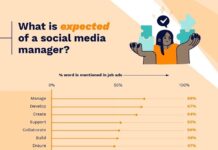Japan’s three largest home-grown social networks – GREE, mixi and DeNA’s Mobage-town – in September 2010 each had between 21 million and 23 million users, and all three have strong mobile offerings, as reported by eMarketer.
GREE and Mobage-town have rapidly increased user numbers and engagement by offering hundreds of free and paid social games, which encourage playing with and competing against friends. This heavy incorporation of social games (largely mobile) has led to significant increases in profit: eMarketer reports that from July to September 2010 DeNA and GREE reported net sales of ¥27.1 billion and ¥12.4 billion, representing increases of 216% and 82% year over year, respectively.
DeNA’s social games (including item billing, in-game ads, affiliate ads and avatars) represented 79.0% of total sales, while traditional display and contextual ads accounted for only 6.3%. The ratio was similar for GREE, with paid services (gaming) accounting for 80.6% of total sales and only 19.4% coming from ads.
With less of a focus on social gaming, mixi is still heavily dependent on advertising, and total sales are much lower than their rivals—¥3.9 billion, for an increase of only 22% over the year before. Now trying to catch up, mixi has opened its platform to outside developers including GREE, Facebook and Zynga to develop paid services (including social games) and increase engagement.
Will social gaming grow as rapidly outside of Japan? According to Marketing Week, about two out of every five Facebook users already play games on the social networking site every month, which means approximately 200 million people globally.
Newzoo’s U.S. National Gaming Survey 2010 reports that 41% of internet users play games on social networks, and 61% of social network users play social games, which means 87.3 million people were ‘social gamers’ in the U.S. as of July 2010.
As developers rush to create new games for social platforms and the social gaming audience continues to grow, brands will have increased opportunities to engage captivated gamers through in-game ads, promotions, and sponsorships.


